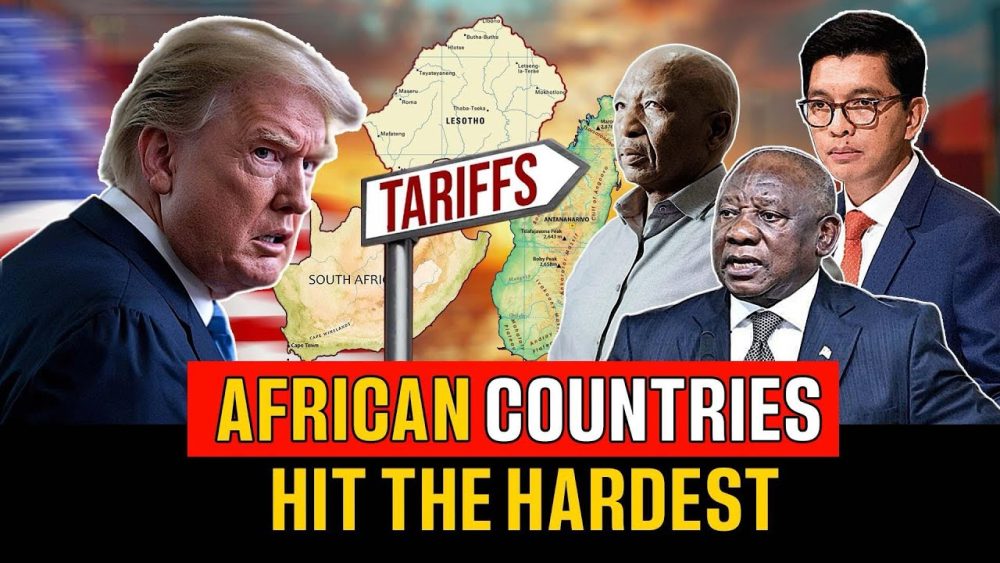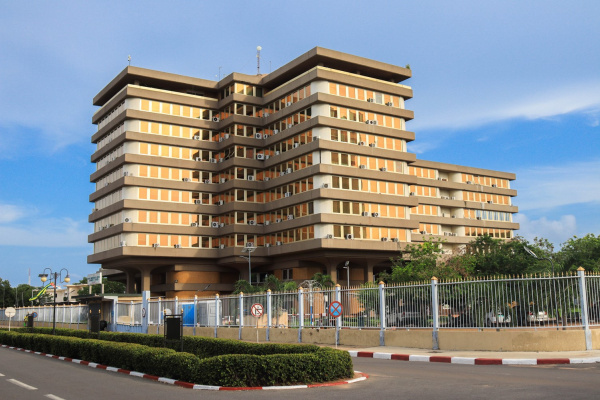By Yvan David Danisa, AfrikanTrust
In recent weeks, panic has gripped sections of the African policy and economic class. The cause? U.S. President Donald Trump’s aggressive turn toward trade protectionism, and its apparent threat to unravel decades of preferential trade benefits under the African Growth and Opportunity Act (AGOA). From boardrooms in Nairobi to ministerial offices in Abuja and Pretoria, the forecast has been uniformly grim, “Trump’s tariffs could decimate African exports, destroy jobs, and push millions into deeper poverty”.
But these alarmist projections ignore a deeper, historical truth. Africa’s dependence on the Global North—especially the U.S. and Europe—has always been a precarious illusion, not a pathway to true prosperity. If anything, Trump’s America First doctrine is a wake-up call. It’s not a threat—it’s a moment of Uhuru, a moment of possible liberation from the suffocating grip of external dependency.
The moral of this unfolding story is clear. Africa can no longer afford to be a casualty of other nations’ economic experiments. Whether it’s the 2008 financial crash, COVID-19, or Trump’s tariffs, African economies remain perilously exposed to global externalities over which they wield little to no control. The continent’s dependency on raw material exports and its lack of intra-Africa supply chains make it uniquely vulnerable.
It is time for Africans to stop mourning the loss of preferential trade crumbs, and start building a new paradigm—one of intra-African commerce, economic sovereignty, and industrial integration led by Africans, for Africans.
The AGOA Mirage and the Myth of Western Trade Generosity. When AGOA was signed into law in 2000, it was heralded as a revolutionary act of goodwill. The U.S. opened its markets to certain African goods—mostly textiles, apparel, and raw materials—on a duty-free basis. In theory, it was supposed to boost Africa’s manufacturing base and integrate the continent into global value chains. In practice, AGOA was little more than a placebo: a well-packaged soft power tool designed to maintain America’s strategic foothold in Africa without genuinely transforming African economies — a distraction from the structural injustices baked into global trade frameworks such as the General Agreement on Tariffs and Trade (GATT) and the Uruguay Rounds. These frameworks, while liberalizing global trade for the West, left African economies open to cheap, subsidized imports from the Global North, hollowing out local industries and inhibiting the continent’s economic self-determination.
Between 2000 and 2024, AGOA exports peaked in 2008 at $82 billion but have since fallen to $29.1 billion. The biggest beneficiaries? Oil-exporting nations and low-wage textile hubs—not diversified, industrial economies, and certainly not countries scaling high-value production. AGOA’s eligibility criteria were also politically biased, making African nations vulnerable to removal for not aligning with U.S. foreign policy interests.
What AGOA delivered was not trade justice or self-reliant growth, but continued entrapment in a global order where Africa was expected to supply raw inputs and consume finished products—while its industrial dreams remained in stasis. AGOA may or may not be renewed. But perhaps it shouldn’t be. The continent deserves better than a trade scheme that functions more as a diplomatic lever than a development tool.
Lessons from the Lagos Plan of Action (LPA). Trump’s tariffs should not send Africa into a panic; rather, they should rekindle the forgotten vision of African economic unity—a vision boldly articulated at the 1980 Lagos Extraordinary Summit under the auspices of the United Nations Economic Commission for Africa (UNECA). Led by the visionary Dr. Adebayo Adedeji, the Lagos Plan of Action (LPA) and the Final Act of Lagos (FAL) called for deep economic integration, the formation of regional economic blocs, and the ultimate creation of a continental common market.
But that dream was derailed by Western-imposed Structural Adjustment Programs (SAPs) in the 1980s. Framed as economic reform, SAPs were in truth instruments of economic sabotage—liberalizing African markets, dismantling domestic industries, and plunging countries into debt traps. African leaders—often Western-educated, propped up by foreign aid, and obsessed with Western lifestyles—abandoned the Lagos blueprint and opened the floodgates to neo-colonial economic control.
Today, that same class of elites cries foul over Trump’s tariffs, fearing the loss of access to Western consumer markets more than the stagnation of African unity. But we’ve been here before—and we must not make the same mistake twice.
Trump’s Protectionism: A Catalyst, Not a Crisis. For the first time in decades, Africa is being forcibly nudged away from dependency on the West. The old trade pipelines are drying up. Europe is scrambling in the wake of U.S. tariffs. China is recalibrating. The world is reordering—and Africa must seize this strategic moment to become a producer, not just a provider.
The African Continental Free Trade Area (AfCFTA)—launched in 2021—is the most promising framework yet. Encompassing 54 countries and 1.4 billion people, it holds the power to unlock intra-African trade, harmonize tariffs, and build continent-wide value chains. But AfCFTA cannot succeed if it’s treated as another photo-op policy declaration. It must be rooted in real industrial planning, regional infrastructure, border cooperation, and a cultural commitment to buying African and trading with African neighbors first.
Trump’s tariffs can be the jolt that Africa needed to treat AfCFTA not as a diplomatic showpiece, but as a survival strategy.
Time to Break With the Neo-Colonial Class. Still, the biggest threat to African self-sufficiency isn’t Trump or Washington—it is the deeply ingrained psychological and economic dependency of African elites on Western systems. These are the people who fear African markets failing not because they believe in African development, but because they fear losing their status symbols, Schengen visas, homes in London or Paris, their children in Swiss boarding schools, bacon from Tesco, Carrefour branded coffee, cornflakes from Walmart, and the latest Apple gadgets.
They have never believed in Africa. They do not see the continent as capable of producing its own food, making its own machines, processing its own minerals, or educating its own children. This class of comprador elites has always been the biggest internal barrier to African economic liberation.
And so, the question is no longer whether Trump’s tariffs will hurt Africa—they might in the short term—but whether African policymakers and civil societies are ready to finally cut the umbilical cord and build something new, durable, and African.
A Continent at a Crossroads—Again. In the 1970s and 1980s, Africa faced a similar crossroads. Faced with a hostile global economy, its leaders proposed a bold, collective economic future. Then, they surrendered to the West.
Today, history is repeating itself—but it doesn’t have to end the same way. Trump’s trade war is not a tragedy for Africa. It is a second chance. A chance to return to the spirit of the Lagos Plan. A chance to build truly African common markets, integrate economies, harmonize industrial standards, and speak to each other in trade terms that matter. This is not to romanticize protectionism. Africa still needs access to global capital and markets. But it must do so on its own terms, with a strong internal base of productivity and exchange. The strategic vision must be long-term: integrate African economies, industrialize, build infrastructure, and cultivate a digital trade ecosystem that serves local innovation.
Africa must trade with Africa—or remain a pawn in someone else’s game. The alarmists wailing about collapsing access to American markets are stuck in yesterday’s dreams. The future lies within the continent—its people, its products, its potential.
It’s time to wake up.
It’s time to trade African.
It’s time to think African.
It’s time to be African.




